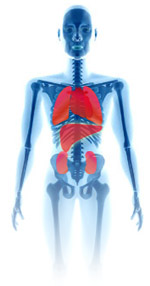Software replaces fax and phone organ allocation
- 16 December 2008
 |
| Click to enlarge |
NHS Blood and Transplant is preparing to roll out a new software system to speed up the process of allocating organs for transplant.
The new Electronic Ordering System is already in use in Cambridge and Manchester and will next be rolled out to Leeds. It replaces a fax and phone-call based system for sending out information about available organs and allocating them to people needing transplants.
A spokesperson for the Bristol-based special health authority said: “At the moment, simultaneous faxes are sent to transplant centres [when organs become available]. That means people have to remember to keep paper in the fax and to check it regularly.
“The new system should make the process of allocating organs faster, and cut down on the number of phone calls that have to be made between centres. In future, there will be an update of the information in the database so that donor transplant co-ordinators can see what is on offer.”
The system uses computer graphics to show donor transplant co-ordinators what organs are on offer, alongside information about the centre offering them, whether other centres have already been provisionally offered them, and whether those offers have been taken up or expired.
Donor transplant co-ordinators can use 3G enabled laptops to share and access the information, using the secure NHSBT network. The agency says this will allow them to work independently in intensive care units and spend more time with donor families. The agency is developing a UK-wide network of co-ordinators, and doubling their number to 250.
The new system was developed in response to the first report or the Organ Donor Taskforce, Organs for Transplant. It was commissioned from global services company Sapient, which worked closely with teams of donor transplant co-ordinators, NHSBT duty office staff and recipient co-ordinators to make sure it conveyed the required information clearly and was flexible enough to be developed further.
Sue Falvey, NHSBT’s director of donor care and co-ordination, said: “This is a very exciting development that will deliver a world class system for the offering of donated organs. It has the potential for added functions, such as entering tissue types which are used in a number of organ allocations, particularly kidneys.”




